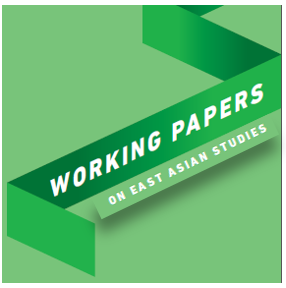Building Transnational Labor Markets : The Case of Taiwan
Taiwan has embedded itself in the global markets and established strong economic relations with
many countries, especially the neighbors in East Asia. However, working in a foreign country, as part
of international economic exchange is still constrained by the regulations and/or socio-cultural barriers
in respective countries. Nonetheless, it is argued that transnational labor markets, which are
primarily constructed by private actors, are emerging in East Asia. Taking up Taiwan as a case, this
study investigates how private actors – temporary help agencies – go ahead of the states and forge
institutions that facilitate labor mobility across national borders in the absence of supra-national institutions,
such as EU or ASEAN Economic Community, where freedom of movement has taken place
or is expected to launch.
Based on interviews with staffing agencies, union activists and government officials, it is found that staffing agencies serve as a transnational HR management function, as they develop international networks and provide their clients and workers with services such as visa application and employment arrangements that accommodate to business, employment and social welfare regulations in both sending and receiving countries. Moreover, staffing agencies translate and diffuse socio-cultural meanings between countries by engaging in socio-cultural training for workers as well as their clients to ensure the success of cross-border labor placements. This research contributes to the understanding of transnational labor mobility by studying the process of building transnational institutions and how these institutions make sense to the involved actors.
Based on interviews with staffing agencies, union activists and government officials, it is found that staffing agencies serve as a transnational HR management function, as they develop international networks and provide their clients and workers with services such as visa application and employment arrangements that accommodate to business, employment and social welfare regulations in both sending and receiving countries. Moreover, staffing agencies translate and diffuse socio-cultural meanings between countries by engaging in socio-cultural training for workers as well as their clients to ensure the success of cross-border labor placements. This research contributes to the understanding of transnational labor mobility by studying the process of building transnational institutions and how these institutions make sense to the involved actors.
Vorschau

Zitieren
Zitierform:
Wang, Chih-Chieh (2017): Building Transnational Labor Markets: The Case of Taiwan. In: Working Papers on East Asian Studies. Online unter: https://nbn-resolving.org/urn:nbn:de:hbz:464-20190218-150830-1.
Zitierform konnte nicht geladen werden.
